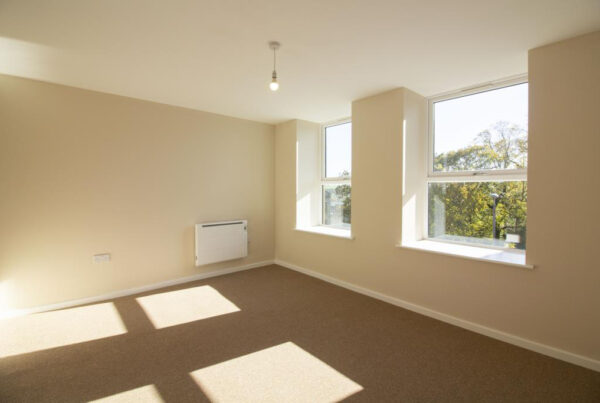When the term ‘property investment’ is used, one of two types of investment are generally referred to: buy-to-sell or buy-to-let investments. This guide is going to focus on the latter, which is by far the most common kind of property investment.
Unlike buy-to-sell (also called ‘flipping’), which involves purchasing a property and quickly selling it for profit, buy-to-let investment is where an investor buys a property and rents it out to tenants. Instead of earning money from the property itself, the landlord does so via rental income — though they may also sell the property for profit later down the line. With around 2.74 million landlords in the UK, it’s clear that buy-to-let investment is a popular choice among property investors.
However, one of the main questions we’re asked here at Alesco is whether buy-to-let still represents a good investment. Changes to mortgage interest relief and a surcharge on stamp duty for second homes, among other factors, have eaten into landlord profits, leading many to wonder whether this is still a desirable path. So, to help clear things up, we’ve broken down the benefits and the pitfalls of buy-to-let investments — plus how Alesco can help you if you decide to go down this route.
Buy-to-let investment guide

What we like about buy-to-let investment
Some of the main benefits of buy-to-let investment include:
- Steady rental income: As long as you have reliable tenants, you can earn regular payments as a buy-to-let landlord. These payments can help cover your mortgage payments and other property-related expenses. The latest statistics show that the average rental income for landlords is around £17,000.
- Control over investment: With buy-to-let property investment, you have a degree of control over the property itself. You can make improvements, manage tenant selection, and maintain the property to potentially increase its value and appeal.
- Tax benefits: The UK government offers certain tax incentives for buy-to-let landlords. These may include deductions for allowable expenses, such as mortgage interest, property management fees, and maintenance costs.
- Consistent demand for rental properties: In the UK, demand for rental properties is often strong, and is currently growing. This is down to factors such as challenges for first-time homebuyers and the cost-of-living crisis.
- Potential for passive income: While managing a property typically requires effort on the landlord’s behalf, you can also choose to hire property management companies to handle tasks like tenant screening, rent collection, and maintenance. This allows you to earn a passive income.
- Long-term appreciation: Historically, property prices in the UK have shown appreciation over the long term. While there can be fluctuations in the property market, investing in well-located properties can usually lead to capital gains over time.
- Exit strategies: Buy-to-let properties provide various exit strategies, such as selling the property for capital gains, transitioning to retirement with a steady income stream, or passing down properties to heirs.

Buy-to-let investment: areas of consideration
The main areas of consideration before getting started with buy-to-let investment are:
- Initial capital requirement: Buying a property typically requires a significant upfront investment, including a deposit and various fees (such as stamp duty and legal fees). This can preclude some people from buy-to-let investment.
- Property management responsibilities: Unless you’re willing to fork out on property management services, being a landlord involves various responsibilities, including property maintenance, tenant management, and handling repairs. This can be time-consuming and may require expertise in property management.
- Vacancy risk: There’s a risk of having periods where your property remains vacant between tenants. During this time, you won’t be generating rental income but will still have to cover mortgage payments and other expenses.
- Tenant issues: Dealing with problematic tenants, late rent payments, or even evictions can be stressful and potentially costly.
- Regulatory changes: Changing regulations and laws governing rental properties can impact your responsibilities and profitability, as we’ve seen with changes to mortgage interest relief and a surcharge on stamp duty for second homes.
- Maintenance and turnover costs: Properties require ongoing maintenance and repairs, and unexpected expenses can arise, affecting your cash flow and returns on investment. In addition, each time a tenant moves out, there are potential costs associated with preparing the property for new inhabitants, including cleaning, repairs, and advertising.
- Interest rate risks: If you have a mortgage on the property, changes in interest rates can affect your mortgage payments and profitability. Rising interest rates can reduce your rental income’s effectiveness in covering mortgage costs.

Our verdict: is it still worth getting a buy-to-let?
It greatly depends on factors such as your financial situation and willingness to actively manage an investment portfolio. However, we believe that, with all things considered, buy-to-let investment is a worthwhile avenue for most property investors considering the huge profits that can be made. Most landlords earn a rental yield of between 6-8%, with some making up to 15% and massively raking in the money — particularly if they have multiple investments.
That said, it’s important to carefully think things through before committing to a buy-to-let property investment. We recommend following the steps below to help you make up your mind:
- Consider your risk tolerance: Investing in buy-to-let properties does come with certain risks, as outlined above, so be sure to consider your risk appetite before making a purchase.
- Perform market research: Research a prospective market to assess the demand for buy-to-lets, taking into account factors such as the strength of the job market and the location’s amenities.
- Plan an exit strategy: Think out how you will exit the investment in the future. Selling buy-to-lets has specific challenges, making a long-term strategy essential.
- Speak to a property investment specialist: Be sure to consult with a property investment specialist like Alesco before committing to a purchase. Real estate advisors have comprehensive knowledge of buy-to-let markets and can offer expert advice on aspects like the advantages and disadvantages of buy-to-let investment, where the best markets are and what this kind of investment involves.

How can I invest in buy-to-let properties?
Investing in a buy-to-let involves a series of steps, including identifying the ideal location, finding suitable investments and actually buying a property. Even those with substantial investment experience can encounter challenges in this process, which is where Alesco can help.
Our extensive expertise, comprehensive market insights, and deep understanding of buy-to-let investment ensure we can offer valuable assistance to both newcomers and seasoned property owners, enabling them to make informed decisions. In addition, we can help property investors like you with aspects like due diligence and the process of purchasing a property.
Contact us to find out more or to make an enquiry.

Written by: Ben Whitaker
Experienced professional working in the real estate investments sector. Assisting and advising clients on the acquisition of property across a range of asset classes, with view to achieving robust return on investment.













